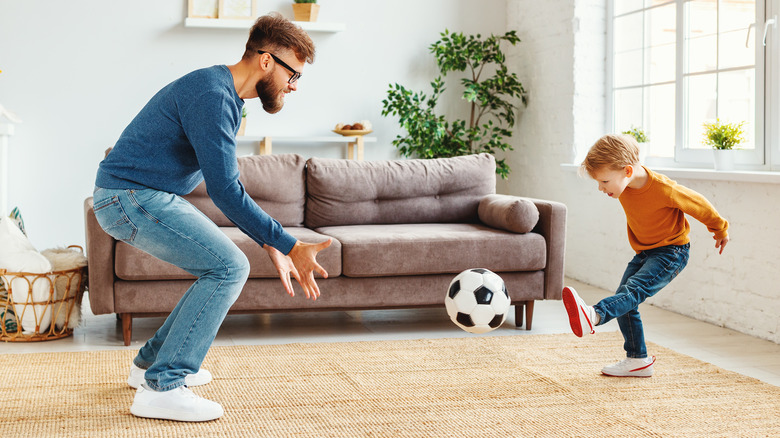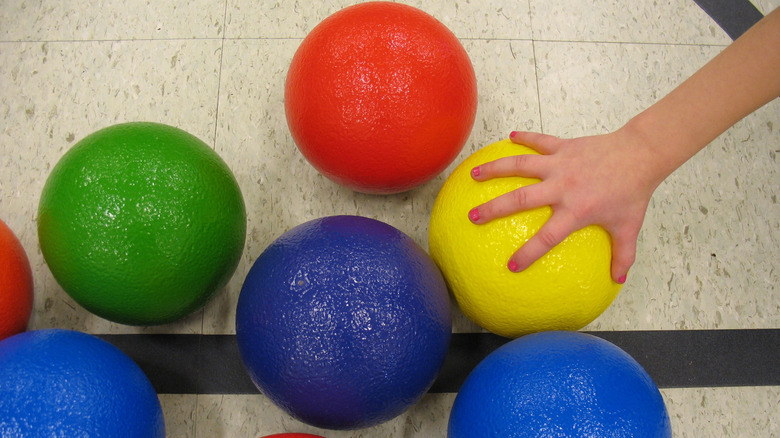Do This If You Want To Improve Your Reflexes
Reflex training sounds like the sort of thing that only really appeals to martial artists and professional athletes. Both groups certainly need fast reflexes, faster than most people are born with. Reflex training can help sharpen those skills while dulling down reflexive habits like flinching (something shadow boxing is great for).
But the benefits of reflex training extend far beyond the big game or a sparring match. Better reflexes can make you a better driver. They can help you keep up better with your kids. And everyday stumbles, trips, and slips might turn out a little less disastrous as your reactions improve.
This is because, as Bodybuilding puts it, there are three stages to a reaction. The first stage is the reaction itself, the point at which you realize that you have tripped, your kid is about to fall, or you're about to be hit with something. This is followed by the response stage where you decide how to respond. Finally you hit the movement stage, or the point where you act on your decision.
The entire process of a reflex usually only takes a second or two, at most. But training your reflexes can make those seconds count. More importantly, as you teach your body new reactions, you may find yourself reacting just a little bit faster, with a more-effective response.
Training tips
Before you start training your reflexes, however, there is one roadblock you will want to make sure you don't hit and that is sleep deprivation. Your body is sluggish and your brain is slow to process information when you haven't gotten enough sleep, according to The Guardian.
Once you're well rested, you can start training. Some options, like wall ball and terrain running, can be done alone. Bodybuilding states that both options require you to think quickly and teach your body the responses that will keep you on your feet rather than sprawled on the ground. Wall ball also trains your hand-eye coordination, meaning you will be more likely to catch or hit the ball the longer you play, since your body will be able to coordinate better with visual input.
Other options, like dodgeball, require at least one partner. These sorts of games teach your body to recognize potential threats or incoming objects, especially if multiple people are throwing balls at the same time. They also teach you to ignore sounds and movement that don't directly affect you, further honing your reactions.
Whether you're working alone or with friends, Healthline offers an important piece of advice to everyone improving their reflexes. The site warns to take things slow and focus primarily on technique when you're first starting out. Poor technique builds a shaky foundation for future practices. And when you want to be light on your feet, the last thing you want is a shaky foundation.


